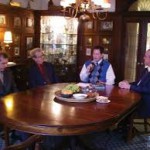
Immediately following the 2017 US-presidential inauguration, members of The American Mental Health Foundation professional-advisory board, Drs. Henry Kellerman and William Van Ornum, were filmed on Public Voice Salon. John Bredin is the gracious host. The freewheeling conversation, centering on the state of psychotherapy and psychoanalysis today, also included Mr. Evander Lomke, executive director, discussing the history […]
By:
Evander Lomke

Does psychology undermine morality? The question is broad. The book on the subject is short. Pundit Mona Charen reviews it in National Review (April 20, 2015). She says, Yes. As a reflection of the research and outreach conducted by this foundation, since 1924, my different view follows…. Regarding Mona Charen’s review of Admirable Evasions: How Psychology […]
By:
Evander Lomke

I have had the opportunity to view an extraordinary documentary entitled Kings Park. Here is what Oliver Sacks has to say: “A brave, compelling look at the life of a state mental hospital and those whose lives it has touched. Lucy Winer has thought long and hard about the subject, and brings to her film […]
By:
Evander Lomke

This is the final blog in the AMHF series of twenty-one films relating to “Hollywood and Psychiatry.” These blogs have taken us from ca. 1921, and the release of silent classic The Cabinet of Dr. Caligari, a mere three years before The American Mental Health Foundation was organized, into the twenty-first century. The first blog […]
By:
Evander Lomke
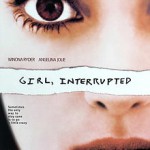
This is film number twenty of twenty-one in the AMHF series, focusing on a range of Hollywood depictions of psychiatry, analysts, and individuals under analysis, from the silent era to the present. (The final film for discussion, an updated version of The Bell Jar, will be included as a kind of “what may be” assuming […]
By:
Evander Lomke
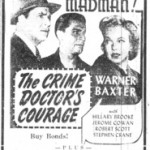
Counting all ten films in the Crime Doctors series as one, this is the nineteenth of twenty-one Hollywood films, from AMHF, devoted to images of psychiatry, psychiatrists, and psychology. These (basically) one-hour films are in a time-honored, formulaic tradition. As comic-book writers fashioned superheroes with separate, mundane identities, so, a little closer to the workings […]
By:
Evander Lomke

This is the first weekend showing of a movie that filmgoers and literary lions alike have been waiting for: The Great Gatsby. Everyone and everything is enmeshed. There are affairs. Grand parties throw people who would not normally meet each other together. The excesses of the Jazz Age coexist with the growing economic conditions that […]
By:
William Van Ornum, Ph.D.
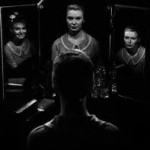
Once known as Multiple Personality Disorder (MPD), Dissociative Identity Disorder (DID) is the subject of film number eighteen of twenty-one in the AMHF series on psychiatry in Hollywood. The Three Faces of Eve covers a most controversial disorder—often outright debunked as the current (as of this writing) DSM-4 had made significant changes to the diagnosis. […]
By:
Evander Lomke
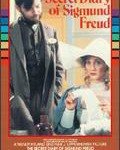
Do you find the concept of a dreaming phrenologist at all funny? I didn’t think so. Once upon a time, psychoanalysis was viewed as nothing but a shabby cousin of phrenology. Freud and his followers changed all this, even though the tired gags of the usually brilliant Woody Allen might leave one to believe otherwise. […]
By:
Evander Lomke

Do you know what acrophobia is? The 1950s, like the 1940s, was a rich era for Hollywood depictions of “psychological problems” and themes—especially around words, terms, and concepts not generally known to audiences as such are today: in part, though we often do not realize it, thanks to the very movies we are putting “on […]
By:
Evander Lomke
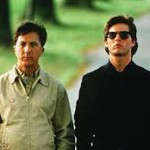
This is the fifteenth movie in the AMHF series of twenty-one. Rain Man won four Academy Awards at the sixty-first Oscars show: Best Picture, Original Screenplay, Director, and Actor—Dustin Hoffman’s second in a remarkable performance. The film revolves around the relationship between a younger, self-centered brother, likewise played to perfection by Tom Cruise, an inheritance, […]
By:
Evander Lomke

Several weeks ago Evander, as part of the series of films on mental health, posted a review of Fear Strikes Out. This unique story–coming out mid-point in outfielder Jimmy Piersall’s career—highlights Piersall’s emotional problems and strange behaviors: talking to Babe Ruth’s statue in the Yankee Stadium outfield, squirting home plate with a water pistol so […]
By:
William Van Ornum, Ph.D.
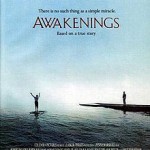
Where does the study of neurology leave off and that of psychiatry and psychology begin? (After all, Sigmund Freud was a neurologist.) Do we understand the intermingling of memory and time? What is “real” and what is “perceived”? What are some of the challenges of the aging consciousness? Here is film number fourteen, “analyzed” in […]
By:
Evander Lomke
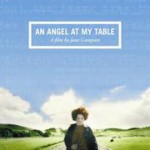
This is the thirteenth of twenty-one films in the series on psychiatry in film. The plot summary is provided by Judd Blaise Rovi. New Zealand poet Janet Frame is the subject of Jane Campion’s biographical drama, which presents a poetically evocative look at the author’s turbulent life. The film begins with Frame’s childhood, showing her […]
By:
Evander Lomke
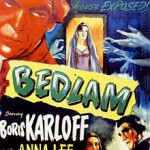
Have you ever felt that you were in hell? As the word pandemonium derives from John Milton’s Satan and his crew in Paradise Lost—in The Screwtape Letters C. S. Lewis refers to the environment/condition as “The Kingdom of Noise” (“the mind is its own place, and can make a heaven of hell and a hell […]
By:
Evander Lomke

“Where’s the rest of me?” Ronald Reagan implores, having had legs amputated. Former President Reagan even used this famous line as the title of a 1960s memoir. Goethe essentially asks the same question in his 1773-74 Goetz von Berlichingen; or, the Man with the Iron Hand. Are we our legs? Our arms? Our faces? Even […]
By:
Evander Lomke
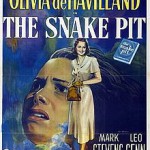
I feel unusually close to The Snake Pit, personally, if not intimately and daily, working with one of the writers, Millen Brand, during my early days in book publishing. This, the tenth film out of twenty-one in the AMHF series, required significant research from the filmmakers in adapting an autobiographical novel by Jane Ward. The […]
By:
Evander Lomke
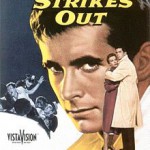
Movie number nine in the American Mental Health Foundation series of twenty-one relating to its mission stars Anthony Perkins (who would famously make a career of playing disturbed individuals: for example in the appropriately named, from the standpoint of this series of essays, Psycho) and the superbly versatile Karl Malden as his unreasonably domineering father (reminiscent of […]
By:
Evander Lomke

A new documentary film presents the emotional health history of a famous American family of artists—the Hemingways—according to CNN, whose sources we quote. This film, Running from Crazy, premiered last week at the Sundance Film Festival. Oprah Winfrey is executive producer. “‘Suicide has no rhyme or reason,’ [Mariel] Hemingway said. ‘Some people, it’s 20 dark […]
By:
William Van Ornum, Ph.D.
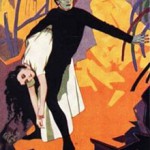
The Cabinet of Dr. Caligari is the eighth of twenty-one films discussed in this blog. It is the earliest movie and the only silent one. It works by flashback and is a vivid visual re-creation of intensely scrambled mental states. The story line, somewhat condensed from Wikipedia, is as follows: The main narrative is introduced […]
By:
Evander Lomke
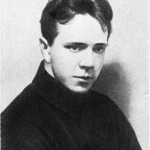
This is the seventh film under under close scrutiny in the AMHF series of films. (We “analyze” other movies in different blogs. But not all are come within this series of, eventually, twenty-one.) Alfred Hitchcock had worked under David O. Selznick five years before, directing Rebecca. The association of two such egos was more a […]
By:
Evander Lomke
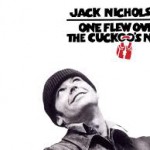
Of the twenty-one films for discussion on this Web site, here is number six, which stars Jack Nicholson and Louise Fletcher in signature roles. Thus is the plot, in slightly condensed form, from Wikipedia: In 1963, Randle Patrick “Mac” McMurphy (Jack Nicholson)—a recidivist anti-authoritarian criminal serving a sentence on an Oregon-prison farm for statutory rape […]
By:
Evander Lomke
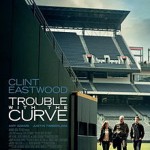
Clint Eastwood in the first-named movie, released over the weekend, is an old-time baseball scout who scours the South in his well-traveled Mustang, attending high-school and minor-league games to find the next baseball phenom—as Mickey Mantle was improbably discovered by Tom Greenwade several generations ago. The Eastwood character knows baseball so well that he can […]
By:
William Van Ornum, Ph.D.
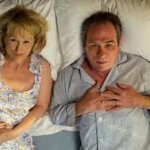
A miserable marriage is certainly a mental health issue. Hollywood has profiled many of these “stuck” relationships—from those who have made lifetime vows to those with other but important commitments. Witness the continuum from Who’s Afraid of Virginia Wolf? to “The Brady Bunch.” Now, we have Tommy Lee Jones and Meryl Streep—at a time when […]
By:
William Van Ornum, Ph.D.
While confronting our fears, discerning our angers and resentments, or unloading on friends or a therapist may be helpful, there is another school of mental health thought emphasizing distraction and humor. Carol Tavris says one of the best antidotes to the kind of anger that sticks in one’s craw is to see a funny movie–explained […]
By:
William Van Ornum, Ph.D.
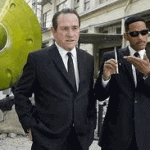
In Men In Black III, Tommy Lee Jones and Will Smith, have returned to help police the Earth from what they call invading life forms that represent “the scum of the universe.” No spoiler here–but it’s a must-see film if you want to learn more about the dynamics of the Agent J-Agent K relationship. Once […]
By:
William Van Ornum, Ph.D.
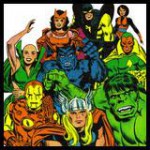
A fan of comic books of old, both DC and MARVEL—I recently saw the movie The Avengers. I was hoping for a respite from all the daily stresses, an immersion in a world of fantasy where good might overcome evil. This was not what occurred. The story line here is how the earth is being […]
By:
William Van Ornum, Ph.D.
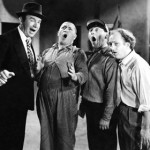
Slapstick humor can do wonders for mental health. Norman Cousins retreated to a place where he could watch videotaped comedies when he was suffering from a serious illness. Carol Tavris recommends the same approach when confronted with the inescapable frustrations of life. In National Review Online, AMHF Board Chair Jack Fowler offers a neat slideshow […]
By:
William Van Ornum, Ph.D.
Controversy swirls around the Motion Picture Association of America “R” rating of Bully. AMHF has earlier blogged on the epidemic of bullying. In principle and logically, AMHF underscores that Cinematherapy begins with the prudent liberty to watch. Currently forbidden by the M.P.A.A. rating, young people—victims and those who target their peers—need to absorb this sensitive-sounding […]
By:
Evander Lomke

Going out to see a movie on the big screen is a great way to spend an evening. Almost as nice is ordering up a movie on the computer and watching right at home. There’s such a great interest in mental-health themes in movies that AMHF is writing about all this on its blog. Can […]
By:
William Van Ornum, Ph.D.
1
2
Next »




































 Host Companion
Host Companion